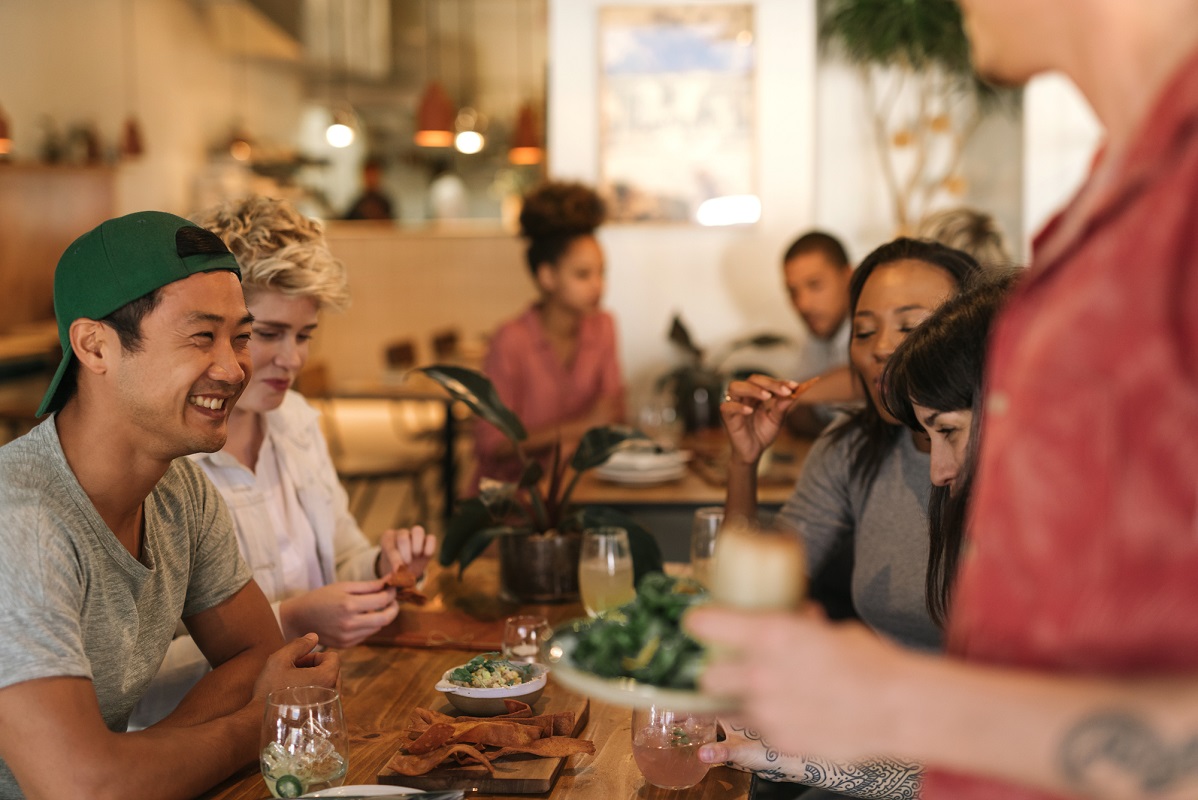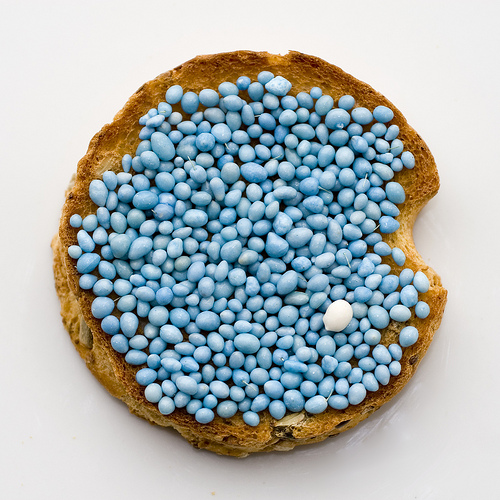When you move into your new home in the Netherlands, you are bound to have a lot of shopping to do. You will have to stock up on all sorts of things, from food to furniture. Where do you buy these items in Holland? Are you meant to queue up to pay? Should you try and haggle? We will take you through the whole Dutch shopping process on this page.
Shop opening hours in NL
So when can you do your shopping in the Netherlands?
In general, shops are open from Monday until Saturday and from 9 A.M. until 6 P.M. However, there are a few exceptions:
‘Koopavond’
- On one evening of each week, shops will either stay open until 9 P.M., or re-open from 7 – 9 P.M.
- This happens everywhere in the Netherlands. However, the late night shopping hours will fall on a different day of the week in each area
- This event is called: ‘koopavond‘. It usually takes place on a Thursday in Dutch cities and a Friday in towns and villages in the Netherlands
Small Shops in NL
- Many shops in the Netherlands close on Monday mornings. This is more likely to happen in smaller Dutch villages
- It enables shopkeepers to stock their shelves and take care of their administration before the week begins
- Small shops often close an hour or two early on Saturdays as well
- Some may close at lunch-time or on Wednesday afternoon, when children are free from school
Larger Dutch Stores, Larger Dutch Cities
- Bigger supermarkets tend to open up an hour earlier than standard Dutch shops. They also stay open a few hours later in the evenings. This gives people time to shop before or after work
- In large Dutch cities all stores, including supermarkets, may decide to open their doors on Sundays
- There is a particular type of small grocery shop, called an ‘avondwinkel‘, that can be found in large cities of the Netherlands
- These little stores will open on Sundays and until very late in the evenings
- Prices are much higher in these shops
- ‘Mini-markets’ can be found at some Dutch gas stations, at large train stations and at Schiphol airport. They carry a small selection of goods
 Side Note
Side Note
A bit of Dutch Opening Hour History:
- Store opening times in the Netherlands used to be different
- Initially, they were designed to enable the shop staff to keep the same working and leisure hours as the rest of the world
- So, nearly all shops were closed on Sundays and in the evenings
- This started to change during the 90s
- In 1996 the government officially extended the number of hours shops were allowed to stay open
- As a result opening times are far more variable today
- Shops aim to meet the needs of the consumers, and the many double-income households in the Netherlands
Shopping etiquette in NL
Dutch Supermarket Shopping
Here is your step by step guide to supermarket shopping in the Netherlands:
- Shops charge you for small plastic bags. They usually cost about 25 cents. So, we recommend that you take one or more shopping bags with you when you leave the house to buy groceries
- All supermarkets store shopping carts at their entrance, for you to use. Usually, they are interlocked with chains. You will need to insert a 50-cent or a one-euro coin to unlock a trolley. You can take this into the shop with you
- Put everything you want to buy into your trolley. You can put your fruits and vegetables into the very thin plastic bags available from the dispensers. You are not charged for these, but you are not obliged to use them either
- Weigh your items, and attach price stickers on them
- Pay for your items at the check out. Payments can be made with cash, but shops also accept PIN or bank cards
- If you have not yet invested in a sturdy, re-useable shopping bag, we advise you to do so when you next go shopping. It will save you money and help the environment. Large, heavy-duty bags are sold at the cash desk of the supermarket
- You must pack your groceries yourself. The government hopes that this will make consumers more aware of plastic pollution
- Return your trolley once you have left the shop. You will get your coin back when you re-connect the cart
Etiquette in Smaller Shops
- When Dutch people enter and leave a small shop, they generally greet the shopkeeper: ‘Goede dag’. This means ‘good day’, and is considered a polite and friendly greeting
- If you are nervous about speaking Dutch, it is important to at least acknowledge the shopkeeper’s presence, by establishing eye contact and giving a friendly nod
Shopping for appliances in NL
A lot of expats need to buy a lot of appliances when they arrive in the Netherlands. This is because the current in Holland is 220 volts. So, unless you are moving here from another 220-volt country, you will need to do some shopping!
This is how you can stock up on appliances in the NL:
- A straight forward way to buy appliances in bulk is to visit a chain store
- These shops will have: refrigerators, washing machines, dryers, dishwashers, vacuum cleaners, toasters, coffee machines, frying pans, televisions, radios, heaters – all that sort of stuff!
- Prices at these chain stores can vary considerably. Therefore, we recommend that you have a good look around before you settle on one shop
For Expats who Might Move Again
Many expats who come to the Netherlands do not know exactly how long they will live here for. If this applies to you, it might not be worth your while investing in brand new appliances. Shopping for second-hand items could be a better option:
- Expat clubs may advertise used appliances
- Your employer’s Intranet-bulletins may display second-hand goods too
- The most common place to purchase these kinds of goods in the Netherlands is on marktplaats
 Tip
Tip
Independent Stores
- Little independent stores in Dutch towns, with large expat populations, may well offer you more tailored service
- Staff will be happy to advise you on what to buy, and even help you to install your new appliances
- The store might even provide support for the duration of your appliances’ life
- Purchasing prices will, however, be higher than at larger shops
- This is option is still worth looking into. If you plan to stay in the Netherlands for a long time, and you want your appliances to last, it may be worth paying the extra margin
toiletries and cleaning products
Cleaning Products in NL
Supermarkets and drugstores, or ‘drogisterij‘, are the places to go shopping for home cleaning products like:
- Detergent
- Carpet cleaner
- Drain de-cloggers
- Stain remover
- Mold remover
- Other Chemical products
Toiletries in NL
You will find toiletries in these shops too, including:
- Soaps and shampoos
- Toothbrushes and toothpastes
- Shaving cream
- Moisturizer
- Sanitary items
Shopping for Babies
Baby necessities, including food and formula, can also be bought at either type of store.
Other Bits and Pieces
The drugstore might be a better option, if you are after:
- Homeopathic medicines
- Dietary supplements
- Bubble bath
- Travel kits or mosquito repellent
- Make-up
Again, prices can vary considerably. So if you are on a tight budget, shop around!
Shopping for other items in NL
1. Computers and Software
- Computers and software can be bought at any electronic store in the Netherlands, big or small
- Or, you can but them over the internet
- Occasionally supermarkets, or large drugstores, will offer a bargain on something like a computer, a printer or another small electronic device. These offers come around at random, so you just have to keep your eyes peeled for them!
2. Furniture
- A good place to look for furniture might be at ‘Meubelboulevards‘: ‘furniture boulevards’ or ‘woonboulevards‘: ‘residential boulevards’.
- The literal translations do not exactly make sense. These places are essentially huge indoor malls, which house all kinds of stores. Others are shopping areas that are home to a cluster of big shops
- If you want to get everything from one place, at a reasonable price, see whether there is an IKEA near you
Unique Pieces of Furniture
- ‘Brocante’ stores sell bespoke furniture, and other decorative homeware
- If you are after even more unique pieces, try one of the many antique shops in the Netherlands
3. Books
- You may have trouble finding English books in small Dutch towns
- Almost all other bookstores in the Netherlands will have a section for English Language books
- In the big cities, there are specialized English-language bookstores such as: ‘The American Book Center‘ and ‘Waterstones‘
- Other large bookstores will French, German and Spanish books as well
4. Food
Read about all about what kinds of edible produce you can buy, and where you can buy it from, in our article on Dutch food. We cover supermarkets, ethnic shops and different cuisines.
OPEN-AIR MARKETS IN NL
Once or twice a week, each town or district in the Netherlands will hold an open-air market. It will often take place in the central market square.
Market Opening Hours
- Most markets will start doing business at around 8 or 9 A.M.
- A few might not get going until 1 P.M, so check online before you go!
- They typically close between 4 and 6 P.M.
- There are very strict rules surrounding starting and finishing hours at the markets
- Salesmen and women will refuse to sell you their goods 15 minutes before ‘opening time’. They do not want to compromise their spot on the market!
Shopping on the Market
- You can buy: fruit, vegetables, fish, sweets, bakery products, fabric, clothing, bedding, cosmetics and many other items at the markets
- Excellent bargains can be found
- To get the best quality produce at the best price, however, you must hone your haggling skills and develop a critical eye. It is easy to get swindled!
- Products from all across the world are available at the market stalls in the Netherlands
- You will find produce from as far away as the Caribbean and Mediterranean regions
 Tip
Tip
Bargaining in the Netherlands
- Bargaining in shops is not customary in the Netherlands
- You are expected to pay the price that is marked on the item, especially if it is new
- If you are buying something second-hand, at a flea market for example, you can try making an offer
- However, expect the answer will be an angry ‘no’, if you drop the price by more than about 25%
GETTING SERVED in NL
 The Dutch do not queue, as you will soon notice.
The Dutch do not queue, as you will soon notice.
The Dutch do not queue! So, what do you do when you want to pay for your shopping?
- Look around to see whether people are taking numbers from a small dispenser at the entrance of the shop
- If they are, then take one yourself. Watch for your number to come up on the screen. This means it is your turn
- If there is no number dispenser, you are expected to keep track of who was waiting before you and to speak up when it is your turn
- A trick, used by many Dutch people, is to enquire: ‘Wie was de laatste?’. This means: ‘Who came in last?’. By asking this, you only have to keep an eye on the one person who entered before you
 Side Note
Side Note
Coffee Shops in the Netherlands
Dutch ‘coffee shops’ sell soft drugs. Low priority is given to the prosecution of coffee shop owners, provided that they only sell small quantities and meet the following conditions:
- No more than five grams, per person, may be sold in any one transaction
- The shop’s stock does not exceed 500 grams
- No hard drugs are sold
- Drugs are not advertised
- The coffee shop does not cause any nuisance
- No drugs are sold to persons under the age of 18, nor are minors admitted onto the shop premises
Municipalities may set up some extra rules:
- The coffee shop may have to be located a certain distance away from schools
- Agreements are made with the local police regarding routine checks on coffee shops
- The mayor of a city has the authority to close down a coffee shop that does not meet the conditions laid out by the municipality
 Recommended reading
Recommended reading
- Food Shoppers’ Guide to Holland
- The Holland Handbook
- Apotheek: Find Dutch Pharmacies and their locations

Everything you need to know about c ...
As an expat in the Netherlands, there might be a couple of traditions that will ...

The UnDutchables 9.0
Following the legendary previous eight editions of The UnDutchables, the 9th edition of this all ...

Gift giving in the Netherlands-all ...
If you feel like skipping your birthday, you may be in for a challenge when ...

The American Netherlander - 25 Year ...
In 1994, author Greg Shapiro came to the Netherlands. The idea was to spend a ...

How to Meet Locals in Amsterdam
Being far from home in a foreign city or country can be one of the ...

Typical Dutch Festivities
In the Netherlands, the Christmas season is marked by a sequence of typical Dutch festivities ...

Special Occasions the Dutch way
The Dutch love to mark a special occasion. What's more, for each one, they ...

Dutch Customs and Etiquette
The Netherlands has its own unique set of customs. There is an etiquette for how ...